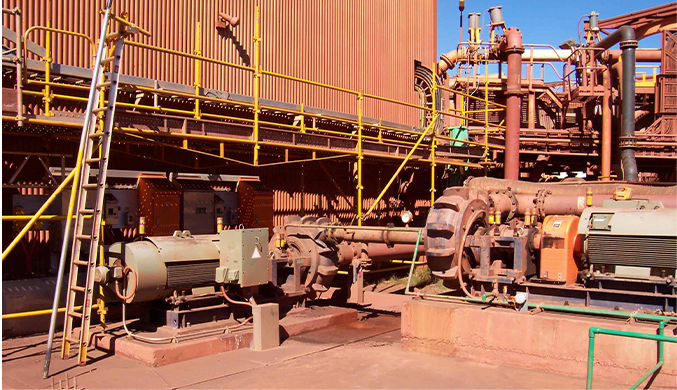English
- Afrikaans
- Albanian
- Amharic
- Arabic
- Armenian
- Azerbaijani
- Basque
- Belarusian
- Bengali
- Bosnian
- Bulgarian
- Catalan
- Cebuano
- Corsican
- Croatian
- Czech
- Danish
- Dutch
- English
- Esperanto
- Estonian
- Finnish
- French
- Frisian
- Galician
- Georgian
- German
- Greek
- Gujarati
- Haitian Creole
- hausa
- hawaiian
- Hebrew
- Hindi
- Miao
- Hungarian
- Icelandic
- igbo
- Indonesian
- irish
- Italian
- Japanese
- Javanese
- Kannada
- kazakh
- Khmer
- Rwandese
- Korean
- Kurdish
- Kyrgyz
- Lao
- Latin
- Latvian
- Lithuanian
- Luxembourgish
- Macedonian
- Malgashi
- Malay
- Malayalam
- Maltese
- Maori
- Marathi
- Mongolian
- Myanmar
- Nepali
- Norwegian
- Norwegian
- Occitan
- Pashto
- Persian
- Polish
- Portuguese
- Punjabi
- Romanian
- Russian
- Samoan
- Scottish Gaelic
- Serbian
- Sesotho
- Shona
- Sindhi
- Sinhala
- Slovak
- Slovenian
- Somali
- Spanish
- Sundanese
- Swahili
- Swedish
- Tagalog
- Tajik
- Tamil
- Tatar
- Telugu
- Thai
- Turkish
- Turkmen
- Ukrainian
- Urdu
- Uighur
- Uzbek
- Vietnamese
- Welsh
- Bantu
- Yiddish
- Yoruba
- Zulu
Telephone: +86 13120555503
Email: frank@cypump.com
Nov . 11, 2024 10:25 Back to list
pipeline centrifugal pump
The Role and Importance of Pipeline Centrifugal Pumps in Modern Industry
In the realm of fluid transportation, pipeline centrifugal pumps play a pivotal role across various industries, including oil and gas, water treatment, chemicals, and more. These pumps are designed to move liquids through a pipeline efficiently and reliably, making them indispensable for many processes. This article delves into the working principle, advantages, and applications of pipeline centrifugal pumps.
Working Principle of Centrifugal Pumps
Centrifugal pumps operate on a straightforward yet effective principle they convert mechanical energy into hydraulic energy. The pump comprises a rotor, or impeller, which is powered by a motor. As the impeller spins, it creates a centrifugal force that propels the liquid outwards, increasing its pressure. The fluid enters through the eye of the impeller and is discharged at a higher pressure from the pump's outlet. The efficiency of this mechanism hinges on several factors, including the design of the impeller, the size of the pump, and the properties of the fluid being pumped.
Key Advantages
1. Efficiency Centrifugal pumps are known for their high efficiency and capability to maintain a steady flow. This makes them ideal for transporting large volumes of liquids over considerable distances without significant energy loss.
2. Continuous Flow Unlike positive displacement pumps that deliver a fixed amount of liquid per cycle, centrifugal pumps provide a continuous flow, which is beneficial for process applications that require a steady supply.
3. Versatility These pumps can handle a wide range of fluids, from clear water to viscous liquids, and can be adapted with different impeller designs to suit specific applications.
4. Low Maintenance The mechanical simplicity of centrifugal pumps translates to lower maintenance requirements. With fewer moving parts compared to other types of pumps, they exhibit greater reliability and uptime.
Applications in Various Industries
pipeline centrifugal pump

1. Oil and Gas In the oil and gas sector, pipeline centrifugal pumps are crucial for transporting crude oil, refined products, and natural gas. Their ability to manage large volumes and maintain consistent pressure is vital for pipeline operations.
2. Water Supply and Wastewater Treatment Centrifugal pumps are widely used in municipal water supply systems and wastewater treatment plants. They help in moving water from reservoirs to treatment facilities and ensure efficient distribution throughout urban areas.
3. Chemical Processing The chemical industry relies heavily on centrifugal pumps for handling various substances, including acids, solvents, and viscous fluids. Their capability to operate under different pressures and temperatures makes them suitable for a variety of chemical processes.
4. Food and Beverage In the food and beverage industry, sanitary centrifugal pumps are used to ensure the safe and efficient transfer of liquids such as juices, sauces, and dairy products. These pumps are designed to meet stringent hygiene standards, ensuring that the end products are safe for consumption.
5. Pharmaceuticals The pharmaceutical sector utilizes centrifugal pumps for the transport of formulations and active ingredients. Precision and reliability are essential in this field, and these pumps meet the necessary regulatory requirements.
Challenges and Considerations
Despite their advantages, pipeline centrifugal pumps do face challenges. Cavitation, caused by drops in pressure leading to vapor bubble formation, can damage the pump. Additionally, the selection of the right pump involves understanding the fluid’s characteristics, including viscosity, temperature, and chemical compatibility.
Moreover, the design and placement of the pump in the pipeline system are crucial for optimal performance. Factors such as the layout of the pipeline, elevation changes, and the presence of fittings can significantly impact the pump's efficiency.
Conclusion
Pipeline centrifugal pumps are integral to modern fluid transport systems across various industries. Their efficiency, reliability, and versatility make them the preferred choice for numerous applications. As technology advances, we can expect ongoing improvements in pump design and materials, further enhancing their performance and expanding their applications. Whether in oil and gas, water treatment, chemicals, food and beverage, or pharmaceuticals, the future of pipeline centrifugal pumps looks promising, underpinning the essential flow of fluids that drives industries forward.
-
ISG Series Vertical Pipeline Pump - Chi Yuan Pumps Co., LTD.|High Efficiency, Energy Saving, Low Noise
NewsJul.30,2025
-
ISG Series Vertical Pipeline Pump- Chi Yuan Pumps|High Efficiency&Low Noise
NewsJul.30,2025
-
ISG Series Vertical Pipeline Pump-Chi Yuan Pumps Co., LTD.|High Efficiency&Energy Conservation
NewsJul.30,2025
-
ISG Series Vertical Pipeline Pump - Chi Yuan Pumps Co., LTD.|Advanced Hydraulic Design&Energy-Efficient Solutions
NewsJul.30,2025
-
ISG Series Vertical Pipeline Pump - Chi Yuan Pumps Co., LTD.
NewsJul.30,2025
-
ISG Series Vertical Pipeline Pump - Chi Yuan Pumps Co., LTD.|energy-efficient fluid handling&industrial durability
NewsJul.30,2025










